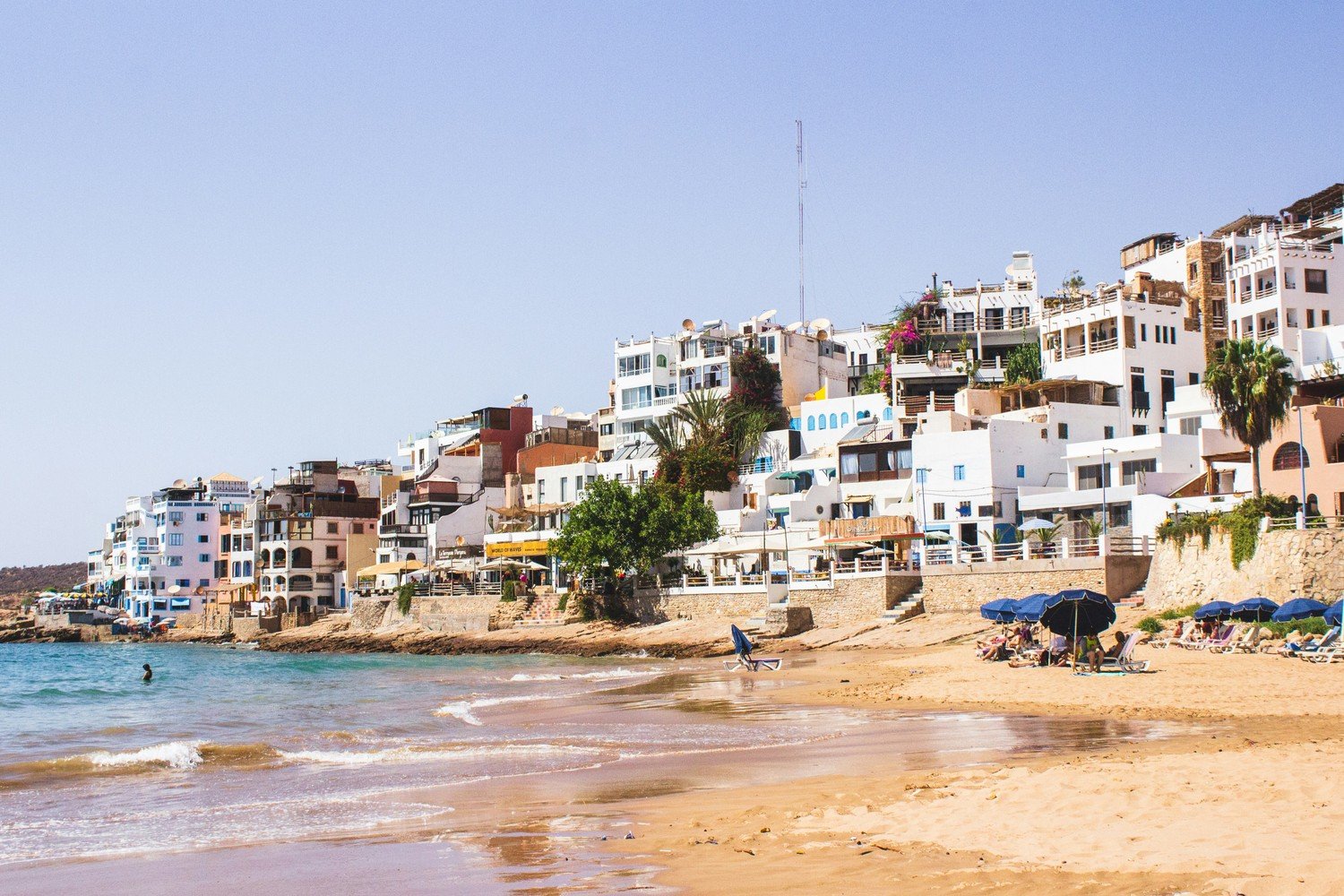
Destination or Hotel
Departure Airports
Travel Dates
Nights
Guests
Price Match Promise
Price Match Promise

ADIOS, ALLERGIES! HOW TO TRAVEL WITH A FOOD ALLERGY
By
LaurenC
26 Feb 2020
Everyone loves a holiday, and there’s no reason that should be different for those with food intolerances. While you do need to be a bit more careful as even small amounts of an allergen can trigger an immune system reaction, if you take some precautions you can easily explore the world, see new places or just get away for a quick break.
Whether you’ve had one for a while or are just developing an allergy, this article will give you the tips you need to safely travel with uncommon or common food allergies. It doesn’t matter if you prefer the glitz and glamour of Dubai, the party atmosphere of sun-kissed Lanzarote or somewhere else in the world - these tips will help you feel safe and confident to get out and explore.
TRAVEL TIPS FOR THOSE WITH UNCOMMON AND COMMON FOOD ALLERGIES
1) DO YOUR RESEARCH
Before you set out, it’s crucial to look up how your destination is for those with food intolerances. Ideally you should do this before you even book, as it’s a great way to narrow down your choices.
As with many things when it comes to planning travel, the internet is your friend. Restaurant menus will give you some idea of the food that’s on offer and whether or not eateries label allergens, while forums and question and answer sites are a great way to hear from others with similar issues.
If you have time, you should follow this up with a little research into local food labelling laws, as different countries can have wildly different regulations.
Once you’ve arrived, it pays to know where any local hospitals and health centres are, as well as the emergency service numbers. Ideally you’d never have to use them, but as anyone with health complications knows, it’s always better to be safe than sorry.
2) LEARN (ENOUGH) OF THE LANGUAGE
No one is expecting you to become fluent for the sake of a holiday - though if you already speak or are learning a language, it can be great to pick a place where you can try your skills out.
Instead, this tip is about making sure that you know enough of the language wherever you are that you can adequately communicate any dietary restrictions. It might seem small, but you don’t want to get tripped up on the difference between a tree nut allergy and peanut allergies, for instance.
Apps like Google Translate are helpful here, but be smart about how you use them. Translate individual words and phrases rather than full sentences, as digital translators often garble longer passages.
You can reduce risk further by travelling with allergy translation cards, available to buy and design online. These little lifesavers explain your condition in the local language, meaning you don’t need to fumble your way through - though for best results you should make sure to learn enough of the language to confirm you’ve been understood.
3) PICK THE RIGHT FLIGHTS
You’ve got your destination. You’ve packed your allergy translation cards and downloaded your apps. You know the emergency numbers and how to communicate in case things go wrong. All you need to do now is figure out how you’re getting there.
Luckily, there’s not too much to worry about here. Avoiding connecting flights is smart as is checking in-flight menus, but health conditions are common - allergies especially so - and airlines have clear rules and regulations to follow to make sure you’re safe and comfortable on board.
For the best results, don’t be afraid to ask how they’ll look after you, both when booking and while in the air.
4) SORT OUT YOUR OWN FOOD
A common feature of living with food intolerances is doing a lot of your own cooking. This is far from a bad thing - as well as letting you control exactly what food products you consume, this can also help you develop your skills in the kitchen.
Perhaps best of all, it gives you peace of mind: while no one is telling you to avoid eating out at all, the safest hands are always your own.
This links to the above points too. Knowing a little of the language and labelling laws will make buying food products much easier, and you should make sure to pick up some snacks after you go through airport security before boarding your flight.
Finally, don’t forget to book accommodation with a kitchen!
Top Tip: Pack some food that will keep in your suitcase so you don’t have to go shopping as soon as you arrive. Dried staples like rice and pasta pair well with cans of sauce, and you can always bring along just-add-water packets such as noodles for a quick meal.
5) TRUST YOUR KIDS
While it’s hard to travel with your own food intolerances, going abroad with kids who have an allergy can be downright scary for any parent.
As with all our tips, though, you should remember that you’re not dealing with an insurmountable challenge. Nowhere in the world is free from common food allergies and even uncommon ones, and that there are adults and children all around the world living with everything from a shellfish allergy to celiac disease to allergies to milk.
Your children, too, live with and manage these conditions every day while they’re at home.
With this in mind, it becomes a simple case of repeating and building on the precautions you take at home. Bracelets and tags will ensure no one misses your child’s allergies, and your own research will of help you make the right choices.
You should also encourage children who are old and mature enough to speak for themselves - to know what they can and can’t eat, recognise potential hazards and speak up when they’re unsure about something.
6) DON'T PANIC
Finally, we come to the most important overarching point; the most crucial thing to keep in mind when travelling with uncommon or common food allergies: don’t panic! It’s been a key theme throughout these entries, but it’s worth repeating.
From buying your own snacks to communicating with airlines to booking accommodation with a kitchen in a place where food is labelled clearly, each of these tips has focused on preparation and planning. If you give yourself the time and space to do this properly, the safer and more secure you’ll feel once you’re out there.
Of course, this doesn’t mean throwing caution to the wind as soon as you get off the plane. There will always be some things you’re uncertain about. For those cases, we’ll leave you with the sage advice of one traveller who’s used to going abroad with allergies:
“Travelling with an allergy is far easier than it used to be. However I’d always recommend that if you aren’t sure, play it safe!”
We hope this list of tips for people with uncommon and common food allergies has been useful. If it has, why not start looking at our destinations now? After all, a bit of extra time to learn the local language never hurts.
40,000+ verified
customer reviews
We want all our customers to stay safe when abroad. For the latest travel advice from the Foreign, Commonwealth & Development Office click here. Further advice can be found on the Travel Aware page here. Please note the advice can change so check regularly for updates and before you travel.
teletextholidays.co.uk acts as an agent in respect of all bookings made by telephone. For all bookings, your contract will be with the applicable Service Provider of your chosen Travel Service (who may be the principal or the agent of the principal) and Teletext acts only as an agent on their behalf. Your holiday will be financially protected by the ATOL scheme and you will receive an ATOL certificate once your booking has been confirmed. Please see our booking conditions for information, or for more information about financial protection and the ATOL Certificate go to:www.caa.co.uk/atol-protection
*We are able to offer a price match if suppliers are the same.
*Limited Availability: Prices are updated regularly, call us for the latest live price.
Teletext Travel Ltd, company number 14855829. Address: 71-75 Shelton Street, Covent Garden, London, United Kingdom, WC2H 9JQ.
Copyright 2025 teletextholidays.co.uk | All rights reserved.




